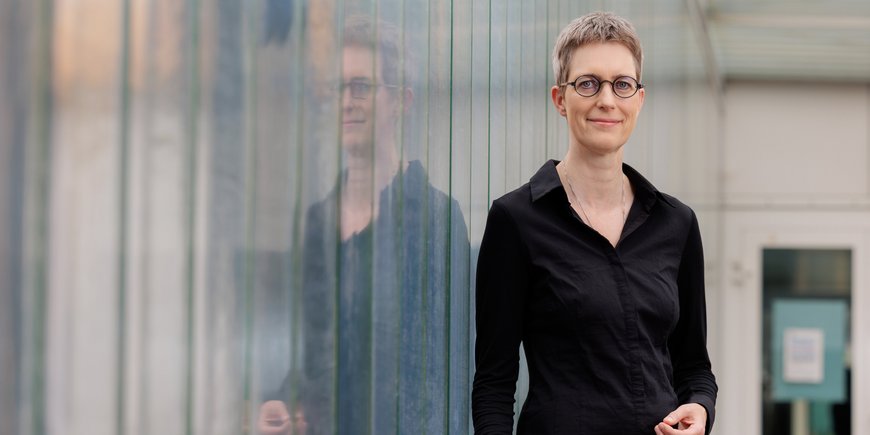At the beginning of the new year, Susanne Buiter took over the office of Vice President for the Research Field "Earth and Environment" in the Helmholtz Association. The Scientific Director of the GFZ German Research Centre for Geosciences in Potsdam succeeds Katja Matthes, Director of the GEOMAR Helmholtz Centre for Ocean Research in Kiel, who completed her term at the turn of the year. Susanne Buiter will coordinate the Earth and Environment research field in a very important phase. Not only are evaluations of all centres due in 2025, but also the preparation for a new funding period of "Programme-oriented Research Funding" (PoF) including a strategic evaluation in the following year 2026.
Preparation of the new joint research programme
The Helmholtz Association comprises 18 centres organized into six research fields: Earth and Environment, Health, Energy, Information, Matter, and Aeronautics, Space and Transport. The Helmholtz Association does not allocate its resources in individual institutions, but in cross-centre research programmes. With its seven centres, Research Field Earth and Environment unites more than 2000 researchers in its programme.
"What makes our Research Field so special is our joint programme 'Changing Earth - Sustaining our Future'," says Susanne Buiter. This concept of a single programme of all Earth and Environment Centres has proven itself from a scientific point of view and is to be continued in the fifth funding period ("PoF V", 2028-2034). Other Helmholtz Research Fields are organized in several programmes each. Although the current PoF IV funding period runs until 2027, preparations for the next programme are already underway, as a comprehensive application must be coordinated between all seven centres, reviewed and discussed in Helmholtz committees.
Research focus: Solutions in the context of climate change
Main topics will be climate change, its consequences and the necessary adaptations. "Global warming with the increase in extreme events and the associated geo-hazards will present us with enormous challenges in the coming years and decades," says Susanne Buiter. "We will continue to develop the existing 'Changing Earth - Sustaining our Future' programme with its systemic and interdisciplinary approach. Based on excellent research, we want to advise and support societies in Germany, Europe and worldwide to become more resilient and achieve a greenhouse gas-neutral economy." This is an important part of the Helmholtz mission to "contribute to solving major and pressing issues facing society, science and the economy". The GFZ’s Scientific Director adds: "It is also important to me not to lose sight of basic research: Cutting-edge science includes both, applied research and basic research driven by curiosity." Both must find a place in the new PoF-V program.
The Executive Committee of the Helmholtz Association
The Executive Committee of the Helmholtz Association consists of the President and the Managing Director as well as eight Vice Presidents. The Vice Presidents support, advise and represent the President. This includes the implementation of programme-oriented funding, the coordination of cross-research field program development and the development of the overall strategy. Two vice presidents come from the centre’s administrative bodies, while the other six each coordinate one of the Helmholtz Association's six research fields.
The following Helmholtz Centres belong to the Research Field Earth and Environment:
- Alfred Wegener Institute – Helmholtz Centre for Polar and Marine Research
- Forschungszentrum Jülich
- GEOMAR Helmholtz Centre for Ocean Research Kiel
- Helmholtz Centre Potsdam, GFZ German Research Centre for Geosciences
- Helmholtz-Zentrum Hereon
- UFZ – Helmholtz Centre for Environmental Research
- Karlsruhe Institute of Technology
About the person
Susanne Buiter has been Scientific Director of the GFZ since June 2022. Born in the Netherlands, she studied geophysics in Utrecht and received her doctorate with a thesis on surface deformation due to tectonic processes. Her career has taken her to Bern in Switzerland, Canada and Trondheim in Norway, where she led various teams at the National Geological Survey (NGU) and taught at the University of Oslo. Since 2020, she has been Professor of Tectonics and Geodynamics at RWTH Aachen University.










![[Translate to English:] Torsten Sachs in front of a climate station on a field](/fileadmin/_processed_/3/9/csm__TorstenSachs_bearbeitet_GS_4a1365ef84.jpeg)

![[Translate to English:] left image flood at the Ahrtal: image from above, several houses are flooded; left image:: Heidi Kreibich;](/fileadmin/_processed_/4/4/csm_Bild2_9af0130e9f.png)



![[Translate to English:] Start der Vega Rakete](/fileadmin/_processed_/6/4/csm_20231201-kachel_Vega-VV23-launch_ESA-CNES-Arianespace_706716b68c.jpeg)









![[Translate to English:] Poster exhibition at the Brandenburg Hydrogen Day at the GFZ, some participants in the foreground](/fileadmin/_processed_/6/5/csm_Erster_Brandenburgischer_Wasserstofftag_GFZ_402fcec95e.jpeg)
![[Translate to English:] Group picture of the participants](/fileadmin/_processed_/9/4/csm_20231108_CAWa-Workshop-Tashkent_Gruppenbild_99ea779d8a.jpeg)

![[Translate to English:] [Translate to English:] Hörsaal](/fileadmin/_processed_/e/6/csm_H%C3%B6rsal_e21ac645fb.jpeg)


![[Translate to English:] The Delegations in the Historic Library on the Telegrafenberg. In the back there are from left to right, the Dutch Ambassador for Germany, Ronald van Roeden, the Dutch Minister for Education, Culture and Science, Robbert Dijkgraaf and the scientific director of the GFZ, Susanne Buiter.](/fileadmin/_processed_/d/b/csm_Kachel-2_9eba4b4212.jpeg)

